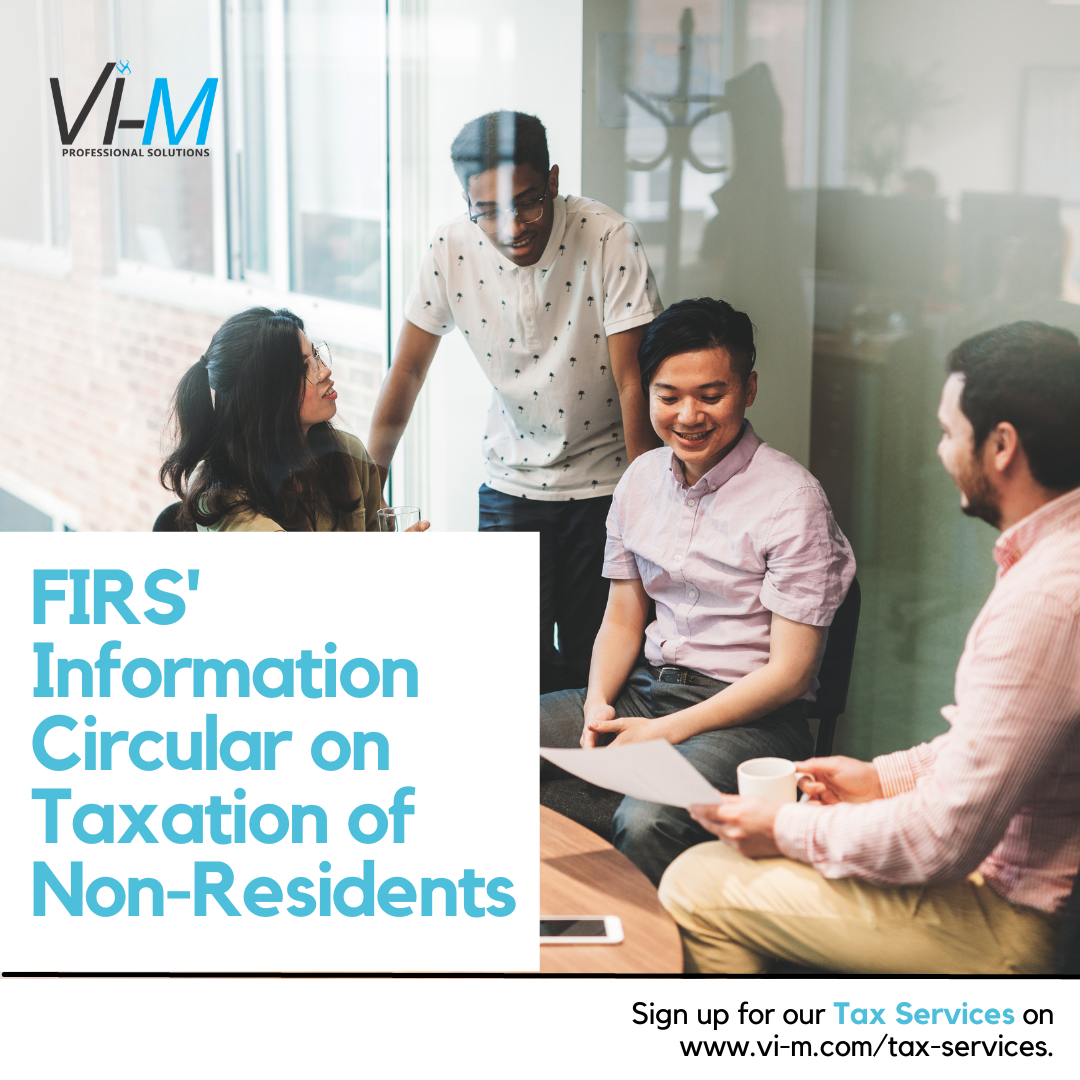Navigating the tax landscape as a non-resident individual or company in Nigeria can be complex, but understanding the rules and regulations is essential. Through its Information Circular of 11 April 2022, the Federal Inland Revenue Service (FIRS) provided a general guide on the application of the Nigerian income tax related laws (and payment procedures) to non-residents (individuals and corporates).
The Circular, however, took very radical/ strict positions on certain provisions of applicable taxes (as is typical of tax authorities in their revenue drive) even though the law makes provisions for concessionary tax treatments in these regard e.g, provisions on deductible interest expense on loans from related parties; and split contract arrangements in a turnkey project.
The Circular is however a recommended read for non-residents seeking to do business or already doing business, earning or receiving incomes from Nigeria, to understand their income tax related obligations, at least from the view point of the tax authority. A copy can be downloaded here or from FIRS’ website (https://www.firs.gov.ng/TaxResources).
We provide a high level summary of the contents of the Information Circular as follows:
Taxation of Non-Resident Companies
Non-resident companies that derive income from Nigeria are subject to Nigerian tax laws. This includes income generated within Nigeria’s borders, income received from Nigeria, and income connected to Nigeria’s resources and economy.
Permanent Establishment (PE)
Determining tax liability hinges on the existence of a Permanent Establishment (PE). This could include a branch, office, or fixed base, establishing a taxable connection for non-resident entities in Nigeria.
Tax Treaties
For non-resident companies from countries with tax treaties with Nigeria, tax liability may be determined based on treaty provisions. A critical element in these treaties is the definition of a Permanent Establishment (PE). If a PE exists, profits attributed to it may be subject to Nigerian tax.
Representative Offices
Even if they are not considered separate legal entities, representative offices are not exempt from tax obligations. Payments to third-party service providers by representative offices may be subject to withholding tax.
Turnover Basis of Taxation
The turnover basis of assessment is applied when a company’s assessable profits appear lower than expected or cannot be readily ascertained. It involves calculating tax based on a percentage of turnover.
Withholding Tax
Withholding tax rates vary depending on the type of income. This includes passive income like interest, dividends, rent, royalties, and payments for contracts and services. Rates differ for companies and individuals.
Capital Gains Tax (CGT)
Non-resident companies are subject to CGT at a rate of 10% when they realize capital gains from chargeable assets.
Tax Jurisdiction
Nigeria has the right to tax incomes derived from within its borders. Relief may be granted for taxes paid in the country where the income arose.
Filing Returns and Payment of Tax
Every non-resident company, regardless of its tax status, is required to file self-assessment returns. Failure to do so can result in penalties.
Remittance of Funds
To remit funds out of Nigeria, a Clearance Certificate from FIRS is required to demonstrate tax compliance.
Taxation of Non-Resident Individuals
Income Sources
Non-resident individuals in Nigeria may have income sources such as employment, consultancy, or investments. Tax liability depends on the nature and location of these income sources.
Tax Treaties
For non-resident individuals from treaty countries, tax treaties can impact their tax liability and the availability of reliefs.
Withholding Tax
Withholding tax rates for non-resident individuals vary depending on the type of income. This includes dividends, interest, royalties, and fees for technical services.
Capital Gains Tax (CGT)
Non-resident individuals may be subject to CGT on capital gains arising from Nigerian assets.
Filing Returns and Payment of Tax
Non-resident individuals must also file self-assessment returns for their Nigerian income sources.
For comprehensive details and illustrative examples, you can refer to the full Information Circular on the FIRS website.
Understanding the intricacies of non-resident taxation in Nigeria is crucial for individuals and companies alike. Our ebook on ‘Taxation of Non-Residents in Nigeria’ also provides a comprehensive and easy guide on how Nigerian taxes apply to non-residents and how they can safely comply, including available tax planning opportunities. A copy of this ebook can be purchased from https://vi-m.com/product/taxation-of-non-residents-in-nigeria/.
For personalised guide or support to comply to Nigerian taxes cost effectively, please do not hesitate to contact us via clients@vi-m.com.

